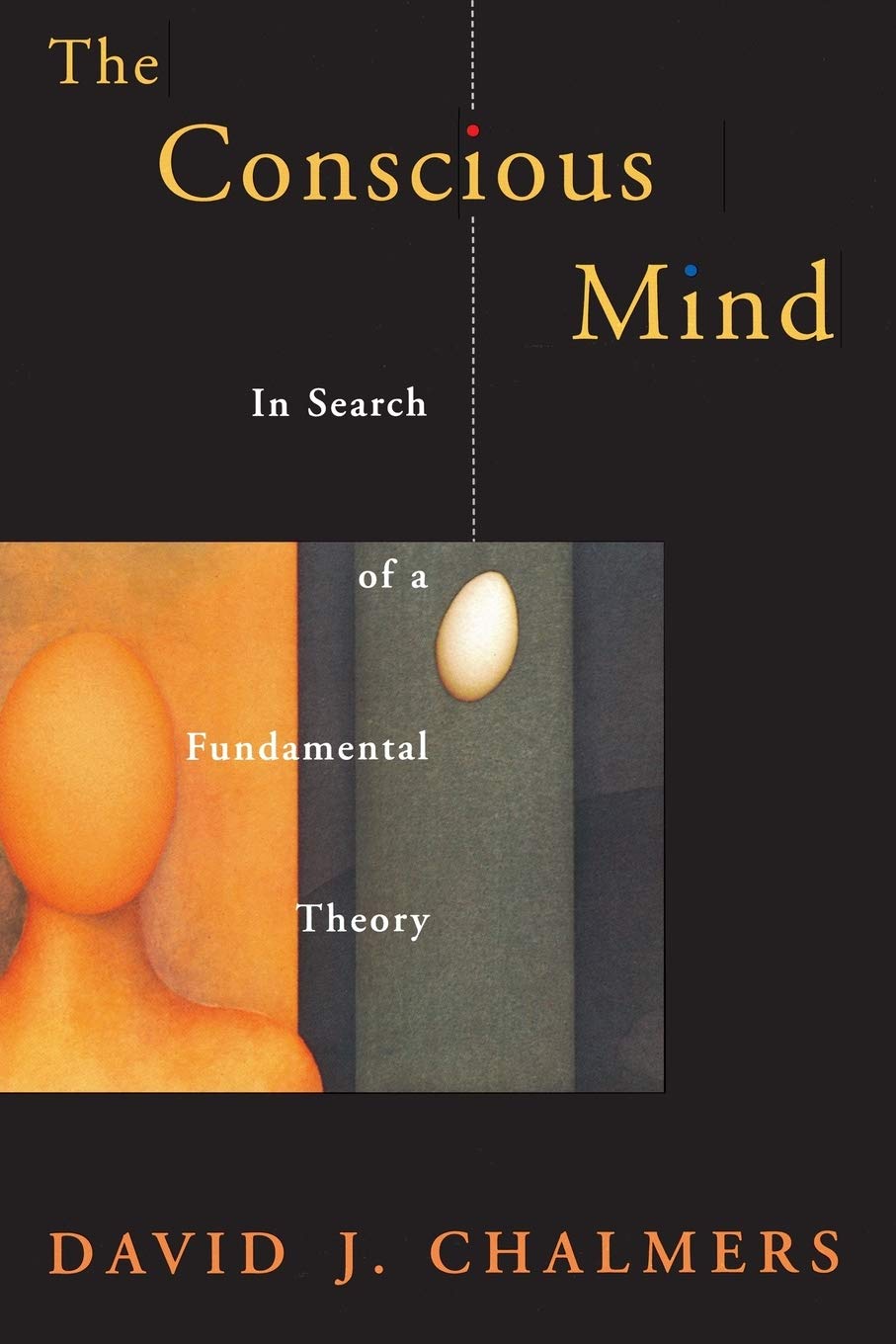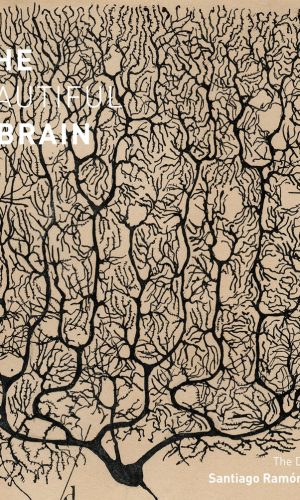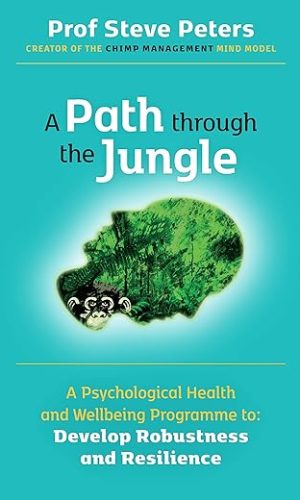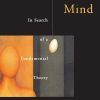The Conscious Mind In Search of a Fundamental Theory (Philosophy of Mind)
£13.20£16.10 (-18%)
David J. Chalmers unveils a major new theory of consciousness, one that rejects the prevailing reductionist trend of science, while offering provocative insights into the relationship between mind and brain. Writing in a thought-provoking style, Chalmers proposes that conscious experience must be understood as an irreducible entity similar to such physical properties as time, mass, and space that exists at a fundamental level and cannot be understood as the sum of its parts. Engaging and penetrating, this book adds a fresh new perspective to the subject that is sure to spark debate about our understanding of the mind for years to come.
Read more
Additional information
| Publisher | Oxford University Press, Revised ed. edition (27 Nov. 1997) |
|---|---|
| Language | English |
| Paperback | 432 pages |
| ISBN-10 | 0195117891 |
| ISBN-13 | 978-0195117899 |
| Dimensions | 26.62 x 11.86 x 2.9 cm |










by Gareth
This is quite a thorough argument against the case for dualism – unfortunate since Chalmers intention is argue for it.
The author spends almost no time at all in the world of actual facts about consciousness, ignoring, for example, that single every aspect of consciousness can be switched off through physical changes in the brain and is clearly therefore dependent upon the physics of the brain for its existence.
Instead, he prefers to waste his intellectual energy putting forward arguments *from* dualism as arguments *for* it. He conveniently forgets, for example, that that we must first hold it to be axiomatically true that consciousness is causally separate from the physical world in order to conceive of phenomenal zombies and inverted spectra. Having forgotten this he eventually gets around to asserting them as proof of dualism.
The circularity of his thesis is both obvious and frustrating.
Chalmers spends a good deal of the middle of the book twisting himself up in the resulting contradictions, obstinately refusing to let go of dualism. On the whole the book is intellectually honest and carefully constructed, but I believe it’s corrupted at heart by his own lack of honesty with himself. He claims early on that he has no attachment to the idea of dualism but the dishonesty of this statement is revealed by arguments that run along the lines of, “God could have created things this way… therefore they must be possible.” He claims to be atheist so perhaps this language is used for the benefit of his audience, but a fundamental belief in dualism is clear and runs throughout.
The author is thorough and deserves credit for this. He sees through the consequences of dualism all the way to realising the implication that qualia cannot be causal in a dualistic model. But when a philosopher who has spent the opening parts of a book insisting on how awe-inspiring and moving his qualia are (so much so that they drive him to spend most of him time thinking and writing about them) and then tries to argue that they’re acausal and not the drivers behind our conscious actions… well, how can we take him seriously? The two facts are in direct contradiction but he holds them simultaneously to be true.
What’s also frustrating – and more than a little odd – is that Chalmers happily entertains logically incoherent ideas like phenomenal zombies, yet seems incapable of imagining their counter examples, that perhaps, just perhaps, conscious *is* ‘what it is like to be’ a system that behaves indistinguishably from us. It seems in the end he just prefers the company of invented facts to actual facts. and no amount of pointing out trees is enough to convince Chalmers of the woods.
Like a blind Egyptologist obsessed with only the top stone of a pyramid (which he feels keenly) he absolutely rejects the importance of the parts played by any of the stones beneath and, because he hasn’t felt all of them, resorts to magic to explain how it hangs there.
A frustrating read, but worthwhile for anyone who wants to explore the logical contradictions inherent in dualism.
by Bryn Griffith
This is a serious work of philosophy that is very detailed and thorough. Consequently is not for the light reader with a general interest in the subject. For the most part I was able to follow all Chalmers’ arguments but there are some places (which he indicates in advance) that are particularly technical and include notation of which I was unfamiliar.
Personally, although I find his conclusion that consciousness is on a scale of virtually none all the way through to human consciousness extremely counter-intuitive, it is difficult to refute.
This is something of a classic in its field and I decided to read it prior to thinking about starting a philosophy MA with the OU. I’m glad I did, but I’m not sure about doing the MA tho’!
by T. Blackburn
As a philosophy student already interested in the philosophy of Mind when I began this fantastic work, I can only say that I have been bowled over by the lucid exposition of its arguments, its wide-ranging scope, and its wit.
There is something useful to be found in this work for many people, from the interested general reader to the academic. The arguments are persuasive, clear, and so helpfully laid out – at no point was I lost, or seeking extra clarification. Chalmers is an extremely gifted writer, and the cohesion and exposition of his views are astounding. Here is a brief synopsis of the book:
– CHAPTERS 1 AND 2 – Chalmers introduces the mind as having, simply put, two aspects – the psychological (desires, beliefs), and the phenomenal (‘feels’, and the ‘what it is like’ element). The two categories may overlap, with the latter including some of the former. The phenomenal aspect of mind is what poses the hard questions about consciousness. Chalmers cashes out his notion of ‘supervenience’, which he uses to define physicalism and dualism. The reductive physicalist position is that the mental (inc. the phenomenal aspects) logically supervene on the physical.
– CHAPTERS 3, 4 AND 5 – Chalmers argues, persuasively, that the logical supervenience required for reductive physicalism fails. The arguments presented are a mix of new and previously existing ones, all presented clearly and forcefully. Chalmers proposes his view – naturalistic property dualism – using primarily the argument from the logical possibility of zombies: physically identical beings to us that nevertheless lack qualia. The possibility of such entities is hard to rule out, and that is all Chalmers needs for his argument to go through. Chalmers then considers the apparent tension between his view and our judgments of our own experience – how can we clearly consider our own consciousness with our psychological minds, when consciousness arises due to separate, phenomenal properties?
– CHAPTERS 6, 7 AND 8 – Chalmers advances arguments for non-reductive functionalism, his positive theory of the mind in the light of property dualism. Consciousness and cognition (awareness) are shown to cohere, providing a basis for consciousness research in cognitive science. Consideration of cases of fading and dancing qualia reveals that something like the ‘principle of organizational invariance’ holds – that all it takes for consciousness to arise is for a particular functional system to be instantiated. Finally, Chalmers proposes that phenomenal properties arise due to the world being intimately related to computational information at its base level – a bold and controversial thesis.
– CHAPTERS 9 AND 10 – Chalmers applies his theory (admitted to be only a sketch, a basis for further research) to the topics of AI and quantum mechanics. The view suggests Strong Artificial Intelligence – the possibility that a machine such as a computer is the right sort of system that could be conscious, just like a human being. The section on quantum mechanics puts forward the hypothesis that Chalmers’ theory, plus a version of the Everett interpretation of QM, is the most favourable approach to one of the most difficult issues in physics – how can QM be such a powerful tool of prediction when the world it suggests seems so wildly different from how we ordinarily take the world to be? This last section functions on its own as an excellent and readable introduction to some of the issues in QM.
Overall, a stunning work of philosophy, extremely well written on a fascinating subject.